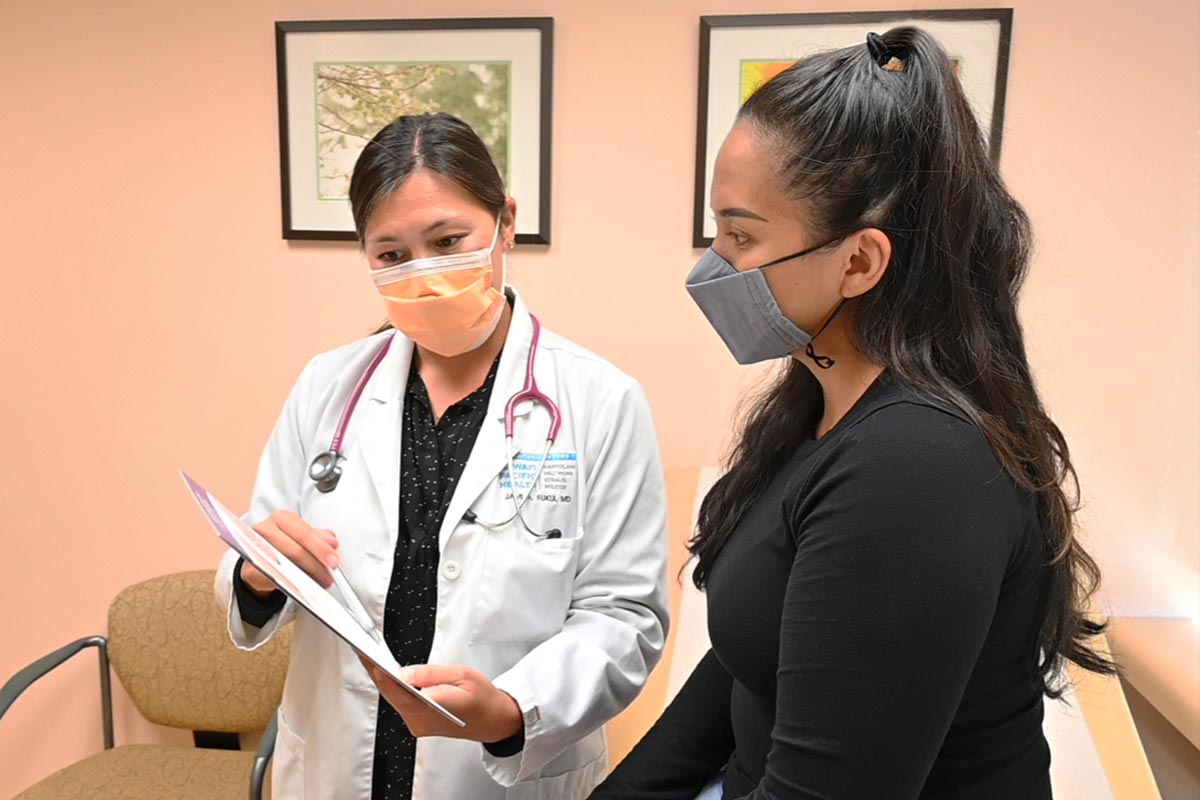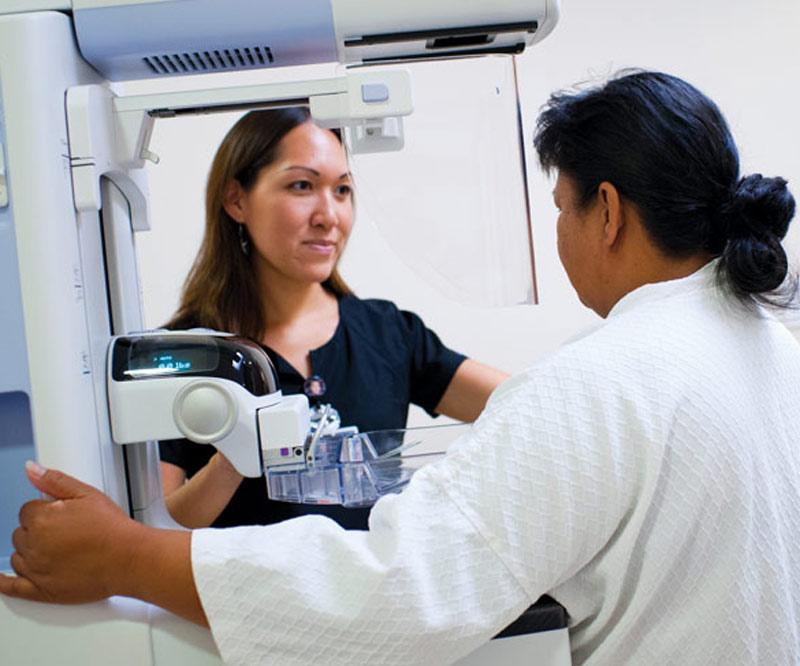
Early Detection is Key to Breast Cancer Prevention
A breast medical oncologist at Kapiolani Medical Center for Women & Children who specializes in breast cancer and breast cancer clinic trials, Dr. Jami Fukui is also an associate professor at University of Hawaii Cancer Center.
Fukui earned her medical degree from Robert Wood Johnson Medical School in New Jersey. She also completed her residency in internal medicine and a fellowship in medical oncology and hematology at Icahn School of Medicine at Mount Sinai in New York City.
Breast cancer is the most frequently diagnosed cancer in women in Hawaii, Fukui notes. In fact, the state has a higher incident rate than the national average.
Here, Fukui emphasizes the importance of screening, treatments and clinical trials.
What do you do as a breast medical oncologist?
After someone is diagnosed with breast cancer they will often see me to discuss all treatment options, including chemotherapy and/or anti-hormone therapy. Sometimes I see women who have pre-cancerous conditions or breast lesions that are considered high risk, and we discuss ways to reduce their risk of developing breast cancer.
What inspires you in your work?
My patients at Kapiolani Medical Center. Their strength during a vulnerable and difficult time fuels my passion for breast cancer research and clinical trials. Through research, we can continue to improve our standard of care. My work includes a balance of time in clinics with patients and research, and both motivate me to challenge and improve the current way we treat cancer. Everyone knows someone who has been affected by cancer; it’s personal.
How important are early screenings for detection of breast cancer?
Early screenings are essential, yet, we know there are health disparities that exist in our community, and there are many factors that can be barriers to breast cancer screening and breast cancer care. At the University of Hawaii Cancer Center, we research ways to address these barriers to improve early detection through both screening and awareness through education. We currently have clinical studies looking at how we can improve breast cancer screening in underserved areas and communities in our state.
Once diagnosed, cancer can be overwhelming for a patient. What can you tell readers about the medical team that works with patients at Kapiolani?
Cancer care is complex, with multiple specialists involved in providing various aspects of treatment. At Kapiolani, we make sure to coordinate and collaborate with nurse navigators, social workers and clinical staff to ensure the highest level of care from a multi-disciplinary team.
How has screening and treatment of breast cancer changed over the past 10 or 20 years?
We have seen tremendous developments in all breast cancer subtypes. Even the historically difficult-to-treat, triple-negative breast cancer, which tends to spread faster and has fewer treatment options, has the potential to respond to immunotherapy, which boosts the body’s immune system to fight cancer cells.
Why are clinical trials important and how is that integrated with care at Kapiolani?
Participating in clinical trials now provides access to care options that may become the standard in the future. We participated in a pivotal trial with a new drug several years ago, and this treatment has now been approved as standard treatment today. Women at Kapiolani who participated in this University of Hawaii Cancer Center trial back in 2018 received access to this drug about four years before the general population because they were part of this trial. Our national guidelines recommend that every patient be evaluated for a clinical trial. We believe it provides the best care for our patients and helps to eliminate disparities in cancer care.
What can people do to prevent breast cancer?
Early detection is key. Get your mammograms!
Lifestyle interventions can also reduce your risk of developing breast cancer. Get at least 30 minutes of physical activity every day, eat plenty of fruits and vegetables, manage stress, limit drinking and avoid smoking.
This article was first featured in the Sept. 28, 2022, issue of MidWeek as a part of the Dr. in the House series. See the full publication here.
Published on: September 28, 2022




